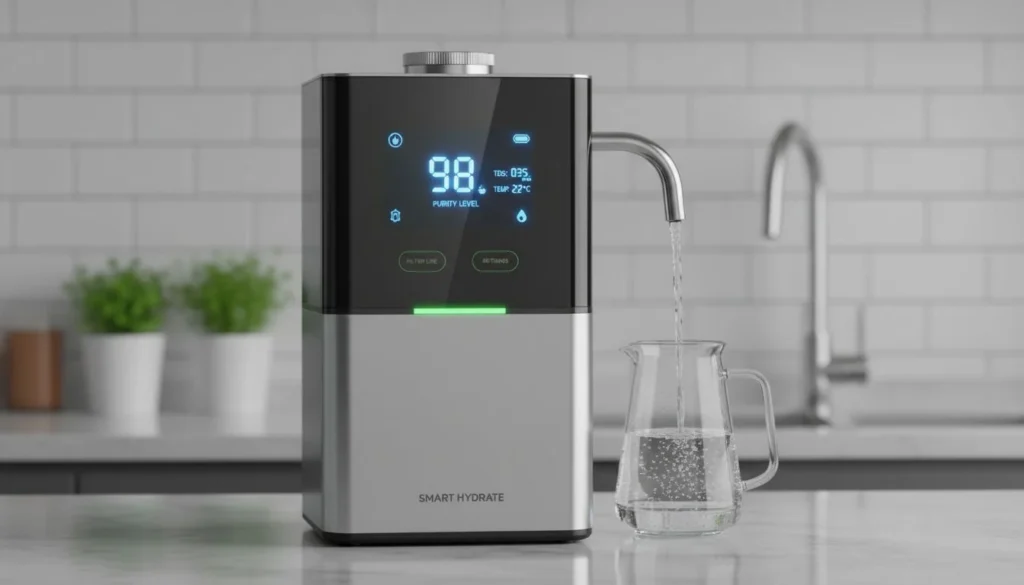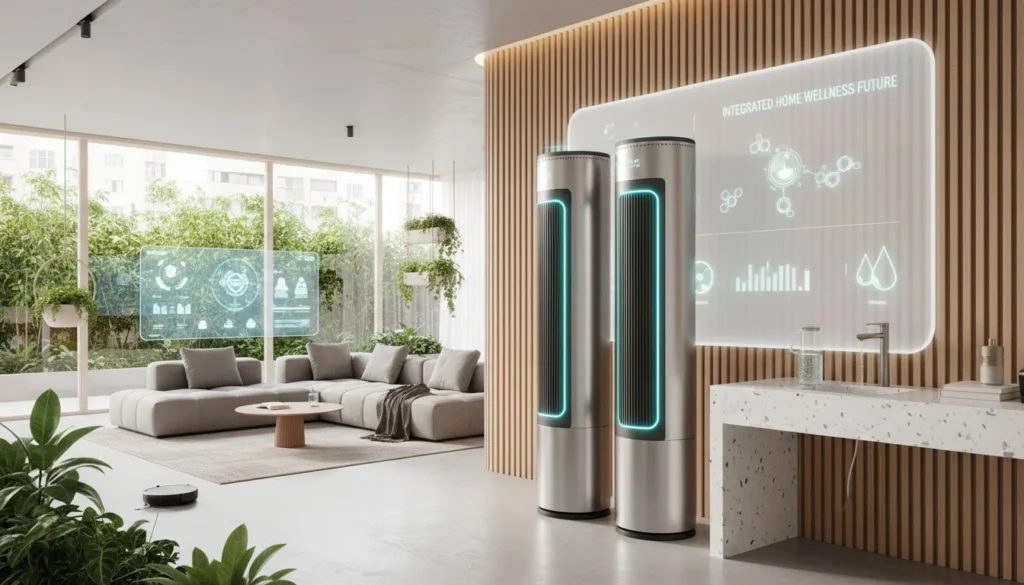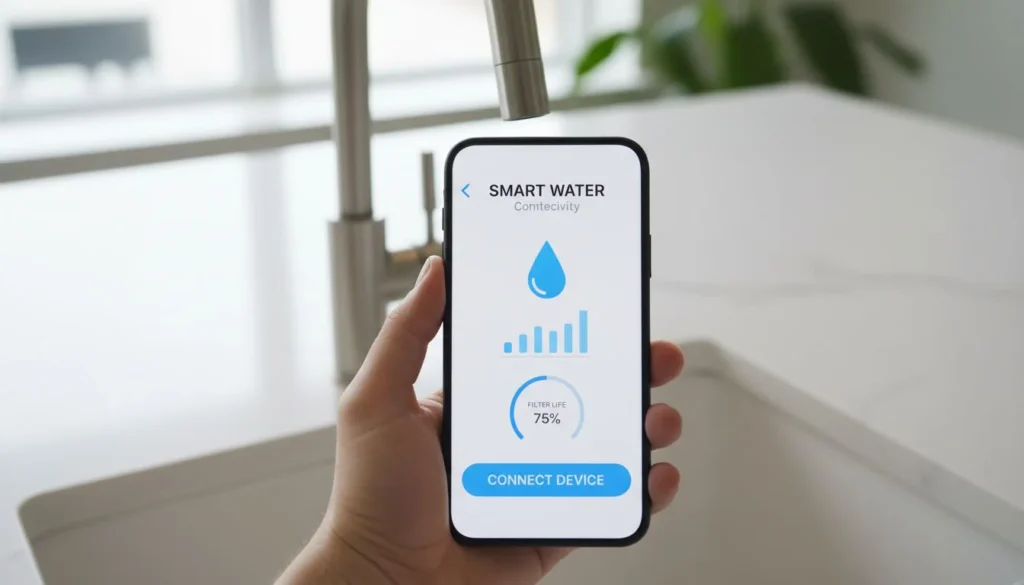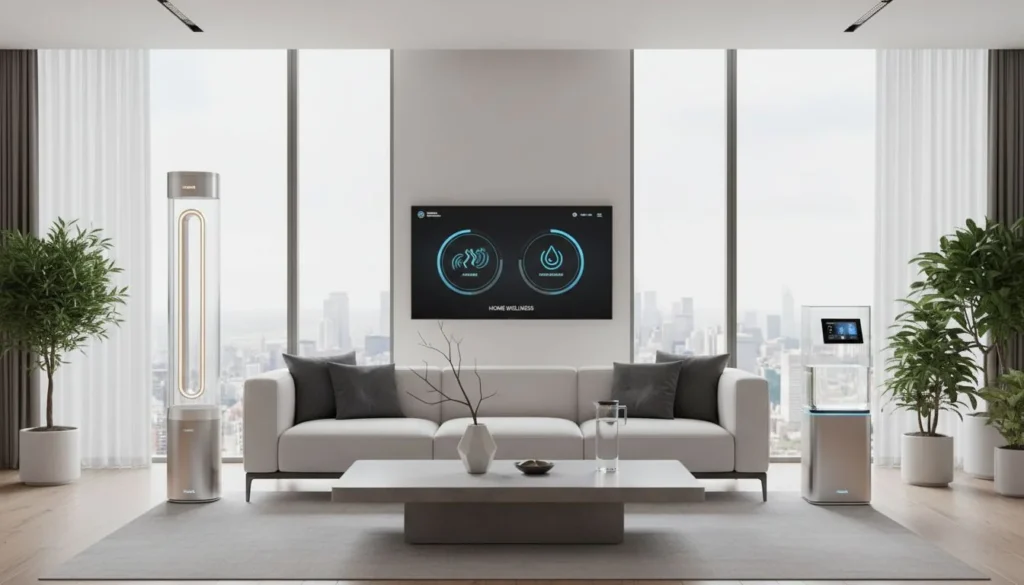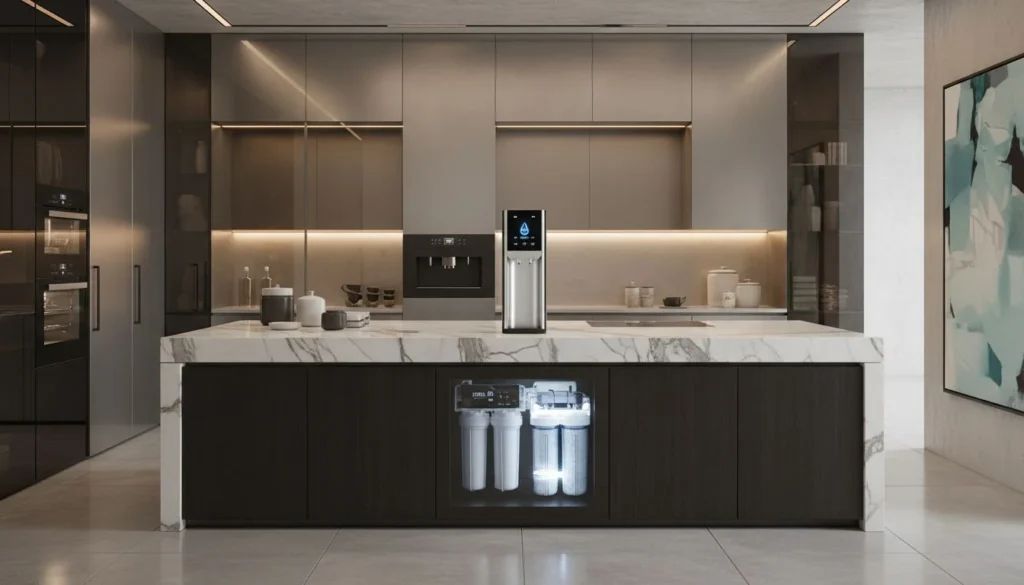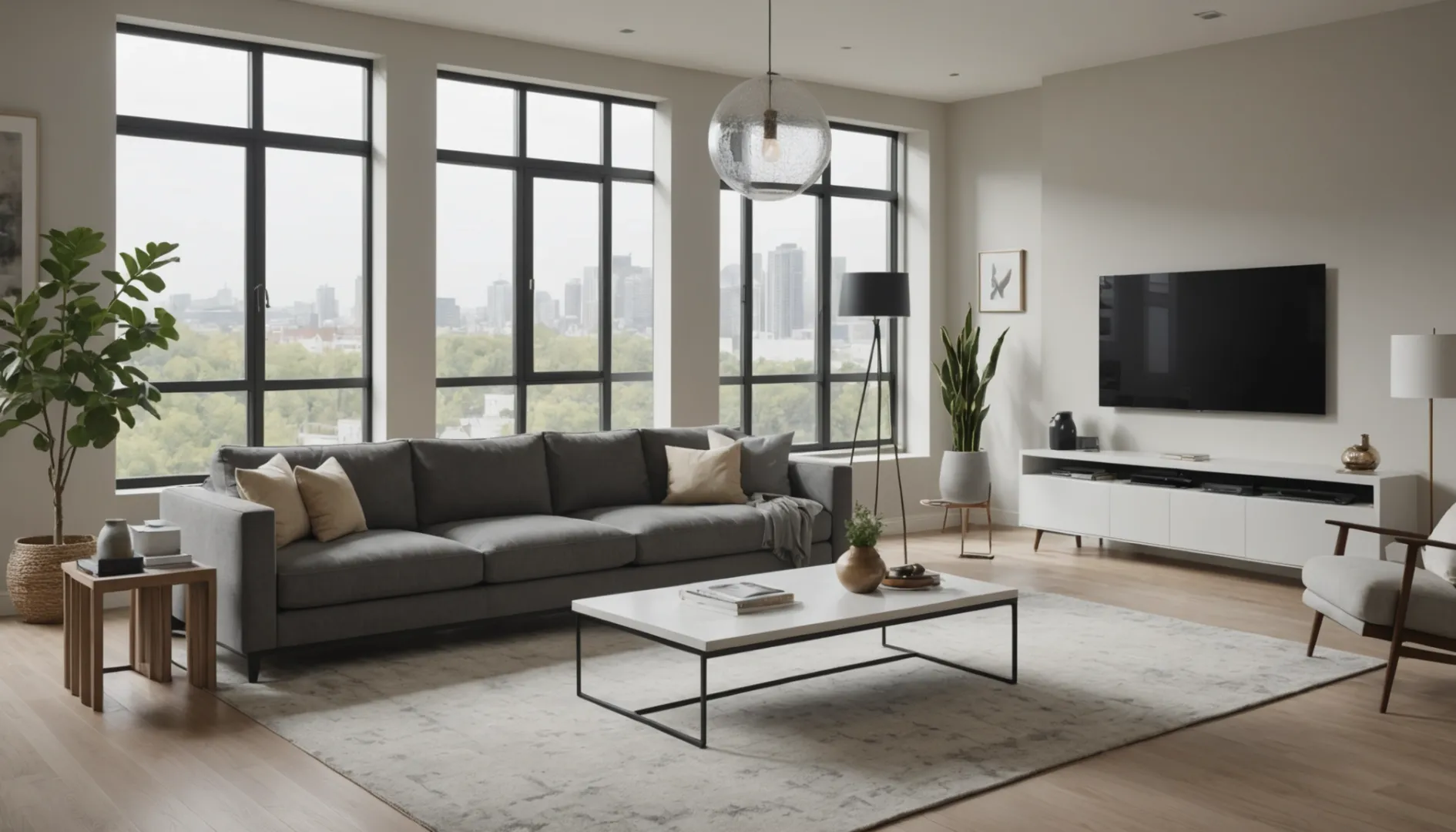
Breathing easy at home has never been more important, especially with air quality becoming a hot topic. With choices like air purifiers or HVAC upgrades, it can be tough to decide which is best for keeping our air clean.
Air purifiers are often more effective than traditional HVAC systems at removing small particles and allergens from the air, thanks to their high-efficiency HEPA filters. While HVAC systems manage temperature and humidity for an entire house, air purifiers focus on specific rooms, capturing 99.97% of particles as tiny as 0.3 microns.
I remember when my allergies were driving me crazy, I felt like I was battling invisible foes inside my own home. That's when I started looking into air purifiers and HVAC systems. Here's what I found: while air purifiers excel in targeting specific areas with their advanced filtration capabilities, HVAC systems are the backbone of whole-house comfort, managing temperature and humidity. It's essential to weigh the costs, compliance standards, and even upcoming tech trends in this decision.
Exploring these options brought me to a crossroads of practicality versus comfort. Air purifiers are generally more affordable and readily available online, making them an attractive choice for immediate relief. Meanwhile, upgrading an HVAC system can be a hefty investment but integrates seamlessly into the structure of a home or office. After COVID, the demand for cleaner indoor air has skyrocketed, leading to innovations like smart integrations between air purification tech and HVAC systems. This trend might just revolutionize how we tackle indoor air quality, blending AI and IoT for smarter solutions.
Air purifiers are more cost-effective than HVAC systems.True
Air purifiers can be purchased online, while HVAC systems require costly installation.
HVAC systems use HEPA filters like air purifiers do.False
HVAC systems typically use MERV filters, not HEPA, which are less effective.
What Makes Air Purifiers and HVAC Systems Different in Filtration?
Ever wondered what really sets air purifiers apart from HVAC systems? Let's dive in and uncover their unique filtration secrets.
Air purifiers and HVAC systems vary greatly in their filtration prowess. Air purifiers, often equipped with HEPA filters, excel at trapping 99.97% of tiny particles as small as 0.3 microns. In contrast, HVAC systems use MERV-rated filters, focusing more on larger particles and maintaining overall ventilation.
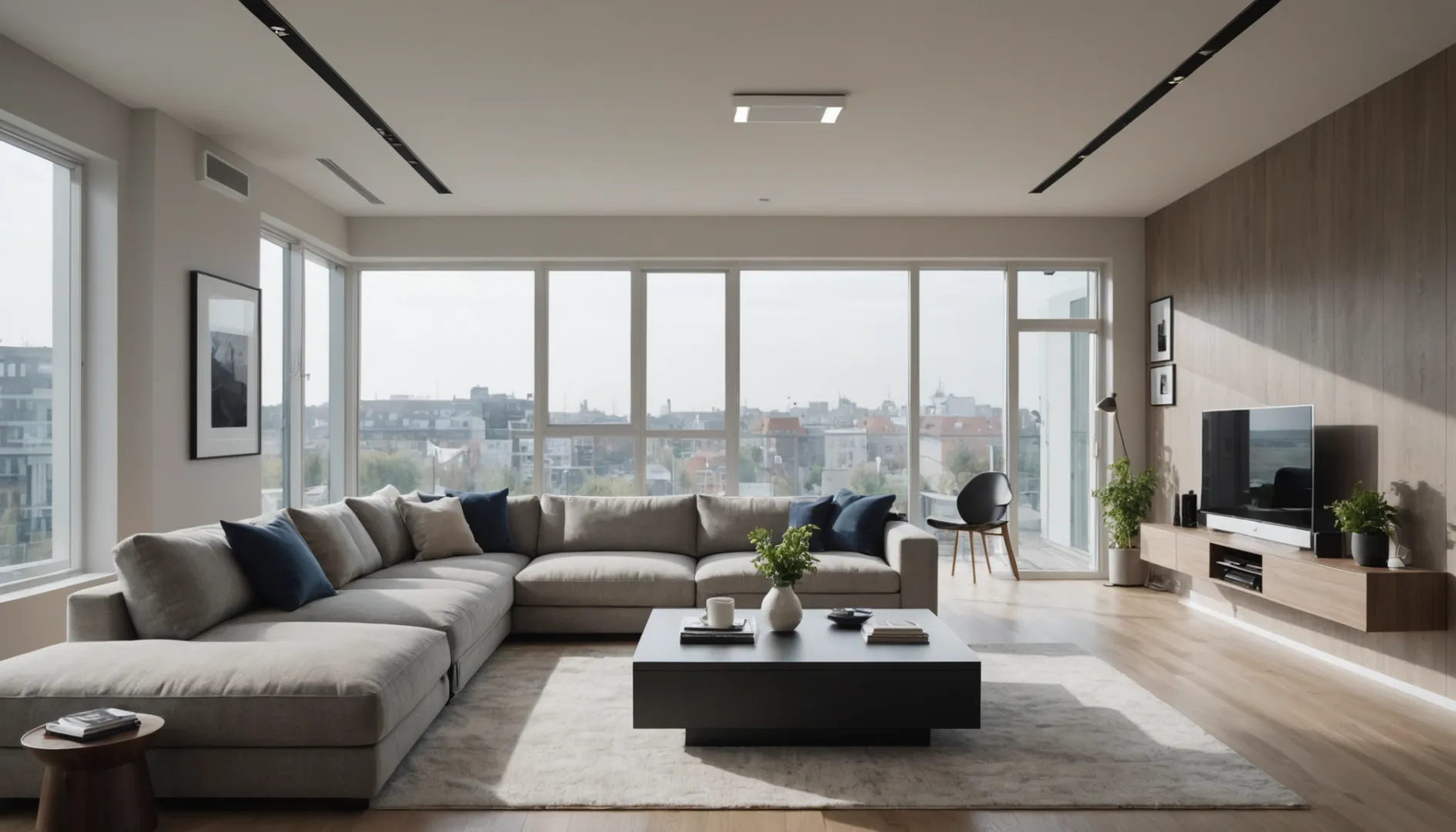
Understanding HEPA and MERV Filters
I remember the first time I decided to tackle the dust issue in my apartment. I opted for an air purifier because its High-Efficiency Particulate Air (HEPA) filter promised to capture even the tiniest particles—like pet dander and pollen—that were wreaking havoc on my allergies. These HEPA filters are a marvel, snagging particles as small as 0.3 microns with a 99.97% efficiency rate. On the other hand, when I looked into our building's HVAC system, I found it used Minimum Efficiency Reporting Value (MERV) filters. These range from MERV 1 to MERV 16, and while higher numbers mean better filtration, they still couldn't match the precision of my trusty air purifier. Learn more about HEPA filters1.
Role in Air Quality Management
When I think about managing air quality in my home, I see air purifiers as my go-to for specific rooms—especially where we spend most of our time, like the living room or bedroom. In contrast, HVAC systems are the backbone of our home's climate control, regulating temperature and humidity throughout the whole house. They emphasize airflow rather than precision filtration, which is a key consideration if you're like me and want to ensure smaller particulates are addressed effectively. Explore the benefits of HVAC systems2.
Cost Considerations and Compliance Standards
Cost was definitely a factor for me. I found air purifiers to be quite affordable and easy to buy online, especially through platforms like Amazon. They fall under the Association of Home Appliance Manufacturers (AHAM) standards, which gave me some peace of mind about their efficacy. But when I checked out the HVAC system options, it was clear that they required a custom design and installation—a significant investment! These adhere to standards set by the American Society of Heating, Refrigerating and Air-Conditioning Engineers (ASHRAE), which is crucial for new constructions. As more people become aware of air quality issues post-COVID-19, integrating air purification tech into HVAC systems is becoming more popular. Discover AHAM and ASHRAE standards3.
Future Trends in Filtration Technologies
The shift in how we view indoor air quality has been incredible since COVID-19. I've seen innovations like Wellcube's portable air purifier making waves by integrating with existing building infrastructures. This kind of tech leverages AI and IoT to enhance how we manage air quality dramatically. The future seems bright for those of us who want smarter solutions to keep our indoor air clean and healthy. Stay updated on air purification trends4.
Air purifiers are more cost-effective than HVAC systems.True
Air purifiers are cheaper and available online, while HVAC systems require costly installation.
HVAC systems use HEPA filters like air purifiers.False
HVAC systems typically use MERV filters, not HEPA, which are less effective.
What Are the Cost Considerations for Air Purifiers Versus HVAC Systems?
Deciding between an air purifier and an HVAC system can feel like choosing between a reliable sedan and a luxury SUV. Let's dive into the costs and benefits of each to find the right fit for your home.
Air purifiers typically cost less upfront and are simpler to install compared to HVAC systems. However, HVAC systems provide comprehensive air quality improvement for the entire house, often incorporating advanced purification technologies, impacting their long-term value.
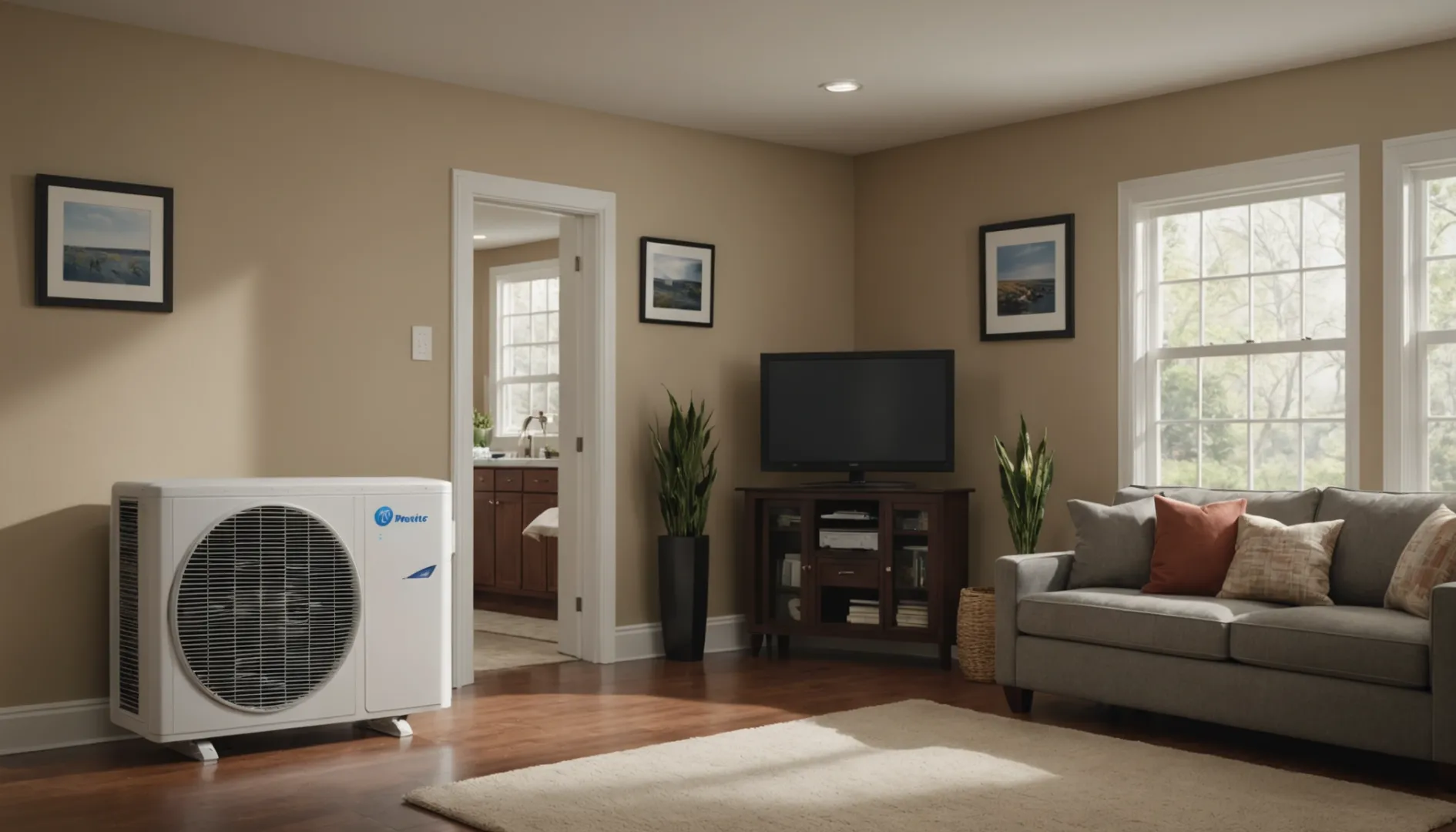
Initial Costs and Installation
When I first considered improving my home's air quality, I was drawn to the simplicity of air purifiers. These standalone units were easy to order online—no fuss, just a couple of clicks and a few hundred dollars later, they were on their way. In contrast, thinking about an HVAC system made me feel like I was contemplating buying a new car. The upfront costs are significantly higher, not to mention the professional installation fees. If you’re building a new home or replacing an old system, this can be quite an investment.
The cost of HVAC installation5 can range from several thousand to tens of thousands of dollars depending on the size of the home and the complexity of the system. However, advancements in technology have led to more efficient systems that could justify the higher initial cost over time.
Operational and Maintenance Expenses
Over time, I realized that maintaining these systems is where the real commitment lies. My HVAC system runs like clockwork throughout the year, ensuring my home remains comfortable no matter the season. This means regular maintenance, such as changing filters and occasional servicing. On the plus side, it helps with overall energy efficiency, which could mean lower utility bills.
Air purifiers require less energy but still demand frequent filter changes, especially those with HEPA filters. If you have several units around the house, you might find the cumulative cost creeping up.
Long-term Value and Integration
The long-term value really depends on your household's specific needs. Our family has members with allergies, so the comprehensive solution of an HVAC system with integrated purification technology was a no-brainer. It manages not just pollutants but also humidity and temperature—crucial for those with respiratory issues.
There's a growing trend towards integrating air purification technology with HVAC6 systems. Innovations like Wellcube promise smarter air quality management using AI and IoT. While these add to upfront costs, they offer significant long-term savings through improved efficiency.
Evolving Standards and Trends
With rising awareness of indoor air quality, both air purifiers and HVAC systems are stepping up their game. They must meet rigorous standards—AHAM for purifiers and ASHRAE for HVAC systems.
The impending 2025 legislation7 is expected to push further integration of purification tech into HVAC systems, making them even more compelling for those looking to future-proof their homes.
Air purifiers are more cost-effective than HVAC systems.True
Air purifiers are cheaper and easier to buy online compared to HVAC.
HVAC systems use HEPA filters for air purification.False
HVAC systems typically use MERV 13-16 filters, not HEPA.
How Do Compliance Standards Affect Air Purifiers and HVAC Systems?
Ever wondered why your air purifier or HVAC system works the way it does? It's all about compliance standards!
Compliance standards like AHAM and ASHRAE dictate the safety, efficiency, and performance of air purifiers and HVAC systems. They ensure these devices are effective in removing pollutants and maintaining air quality, protecting consumer health, and guaranteeing quality control.
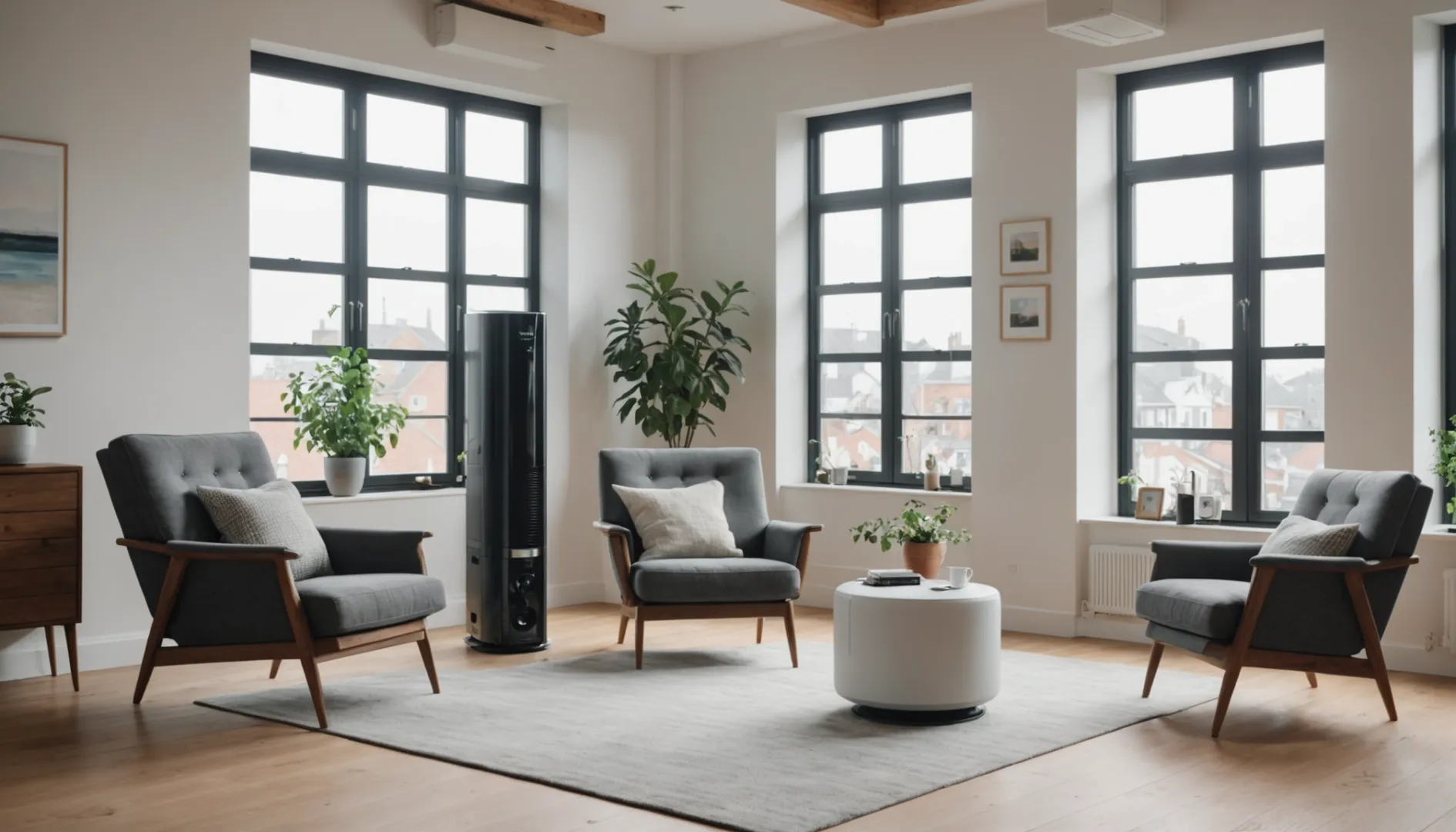
The Role of Compliance Standards
I remember the first time I realized the importance of compliance standards. It was right after I bought my first air purifier. At the time, I was struggling with allergies and needed something that could really clean the air in my small apartment. That's when I discovered the AHAM standard8, which helped me understand how effective the purifier would be at removing smoke, dust, and pollen. Knowing this, I felt more confident about my purchase, as I could trust that the product met certain safety and efficiency benchmarks.
Similarly, if you’ve ever been in charge of maintaining an HVAC system, you know it’s not just about keeping cool in the summer or warm in the winter. The ASHRAE standards9 are crucial because they set guidelines for energy use while ensuring the system efficiently maintains a comfortable environment. This is especially vital in large buildings where energy consumption can soar.
Impact on Design and Performance
When I chose an air purifier with a HEPA filter, I did so because it met specific filtration capabilities—removing 99.97% of particles as small as 0.3 microns. This made a noticeable difference in my allergy symptoms, as it effectively filtered out allergens and pollutants. For HVAC systems, adhering to ASHRAE standards means they are designed to efficiently regulate temperature and humidity levels, which was a lifesaver during a particularly scorching summer.
Technological Advancements and Future Trends
Technology is always evolving, and this is true for air purification too. I recently read about innovations like the Wellcube10, a portable air purifier that integrates with building management systems to improve air quality. Looking ahead, future regulations may require all new systems to include built-in purification technology by 2025, ensuring they meet the demands for better indoor air quality.
The Importance of Staying Informed
After living through the pandemic, I became more conscious of indoor air quality. Understanding compliance standards has helped me make better choices when buying products to keep my home safe. For manufacturers, sticking to these standards means their products remain competitive in a market that increasingly values safety and innovation.
Air purifiers comply with AHAM standards.True
Air purifiers are considered home appliances and adhere to AHAM standards.
HVAC systems use HEPA filters for air purification.False
HVAC systems typically use MERV 13-16 filters, not HEPA filters.
What Future Trends Are Shaping Air Purification Technologies?
I’ve always been fascinated by how air quality can transform our daily lives, and these exciting trends in air purification are taking things to a whole new level.
The future of air purification technologies is being driven by innovations in advanced filtration, smart home integration, and a commitment to energy efficiency and sustainability.
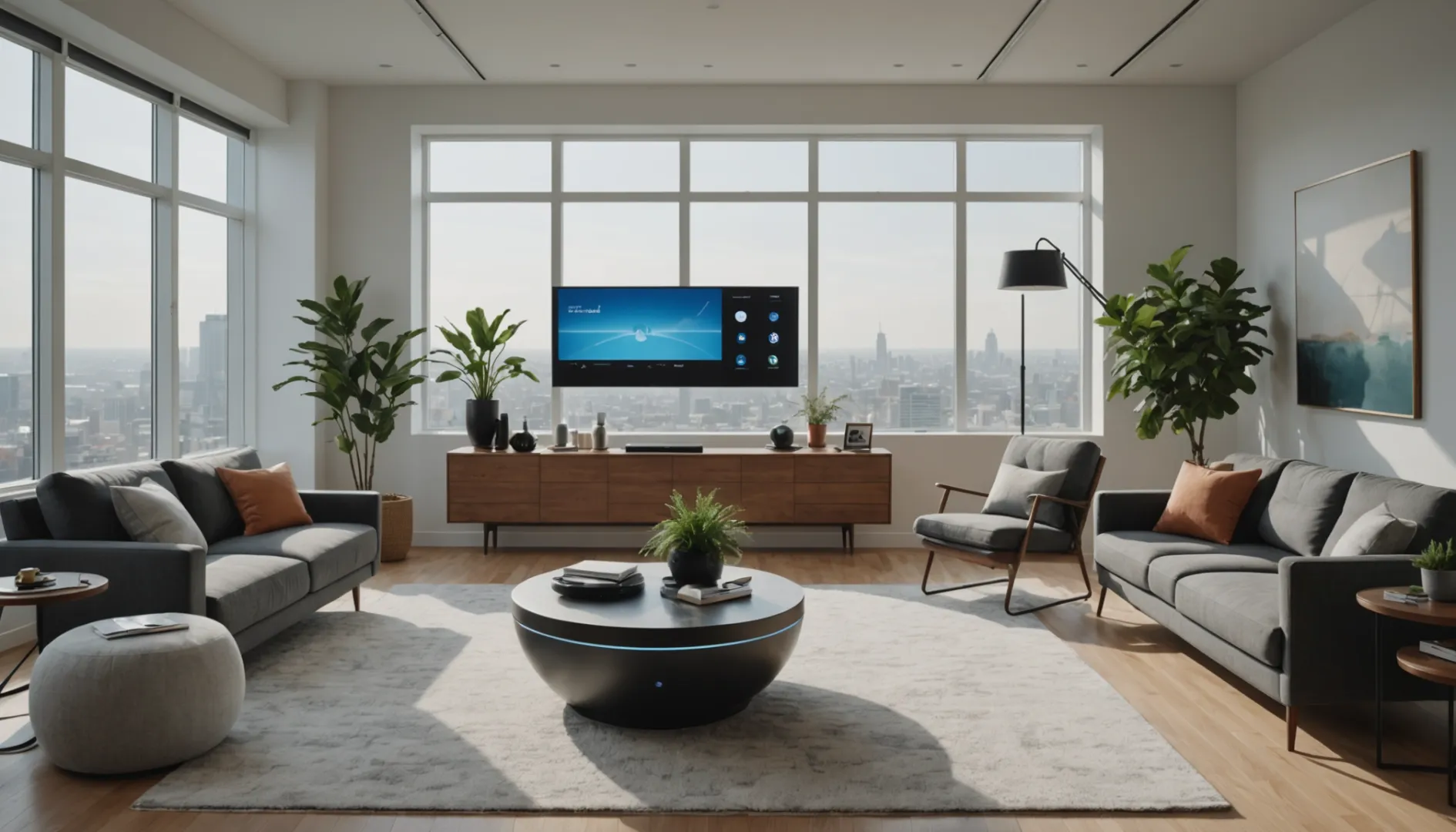
Advanced Filtration Systems
I remember the first time I realized how much cleaner the air felt after using a high-quality filter. It's incredible to see how far we've come since then. High-Efficiency Particulate Air (HEPA) filters are still the gold standard for trapping tiny particles, but now we're adding even more advanced materials into the mix. Innovations like photocatalytic oxidation11 and activated carbon filters12 are becoming go-to solutions for tackling those pesky VOCs and stubborn odors.
Integration with Smart Home Technology
The day I connected my air purifier to my home network was a game-changer. Now, with just a tap on my smartphone, I can control the air quality in my house no matter where I am. Many devices now come with Wi-Fi, allowing them to sync up with our smart home systems seamlessly. Imagine having sensors that adjust air settings based on real-time data—it's like having a personal air quality assistant! The integration of IoT13 means these purifiers are now part of a much bigger picture, working hand-in-hand with HVAC systems to be as energy-efficient as possible.
Focus on Energy Efficiency and Sustainability
I've always been concerned about my environmental footprint, so seeing air purifiers moving towards sustainability is really encouraging. They're becoming more energy-efficient, thanks to advancements in technology and design. Incorporating renewable energy sources14 and using eco-friendly manufacturing materials are just some of the ways these devices are reducing their impact on our planet. Legislation is also steering manufacturers towards greener innovations, which is a win-win for all of us who care about the environment.
Enhanced Indoor Air Quality Management
Post-COVID-19, like many people, I’ve become more aware of the air I breathe indoors. Now, technologies are offering solutions that don’t just purify but manage air quality holistically. Systems such as Wellcube are evolving to integrate with building infrastructures, giving us insights into indoor air quality like never before. It's amazing to think that air purification will soon be just one piece of a larger, smarter indoor environment management puzzle. Imagine a world where the air quality is constantly monitored and optimized automatically—it's not just science fiction anymore.
Air purifiers use HEPA filters for high filtration.True
HEPA filters in air purifiers capture 99.97% of particles 0.3 microns.
HVAC systems are more cost-effective than air purifiers.False
HVAC systems require costly customization and installation, unlike air purifiers.
Conclusion
Air purifiers excel in removing small particles with HEPA filters, while HVAC systems manage whole-house comfort. Both are evolving towards smarter, integrated solutions for improved indoor air quality.
-
Understand the efficiency and benefits of HEPA filters for indoor air. ↩
-
Explore how HVAC systems manage air quality and ventilation. ↩
-
Learn about compliance standards affecting air purifier and HVAC design. ↩
-
Discover cutting-edge developments in air quality management systems. ↩
-
Explore typical installation costs for comprehensive understanding. ↩
-
Learn how integration enhances indoor air quality. ↩
-
Understand upcoming regulations impacting air quality solutions. ↩
-
Learn about the effectiveness criteria for air purifier products. ↩
-
Understand HVAC efficiency guidelines to save energy costs. ↩
-
Explore innovations integrating purification tech with building systems. ↩
-
Discover how this technology breaks down pollutants effectively. ↩
-
Learn about their role in removing VOCs and odors. ↩
-
Explore how IoT enhances control and efficiency. ↩
-
Find out how green technologies are being integrated. ↩


